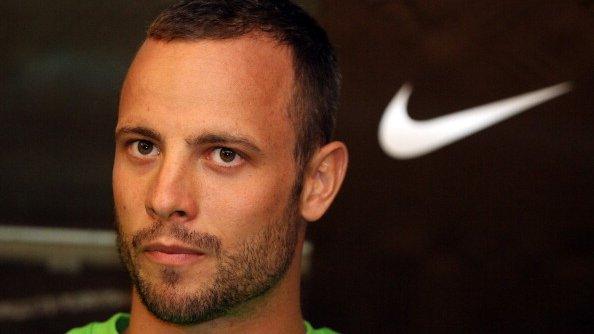Maria Sharapova: Nike, Tag Heuer and Porsche distance themselves following drugs test
- Published
"I did fail the test and take full responsibility for it," said Sharapova at a news conference in Los Angeles
Sponsors have moved quickly to distance themselves from Maria Sharapova after the five-time Grand Slam tennis champion admitted failing a drug test.
Nike has suspended its relationship, while Tag Heuer has cut its ties.
Nike said it was "saddened and surprised" at her admission that she tested positive for a banned substance at the Australian Open in January.
Ms Sharapova said she had been taking meldonium since 2006, on the advice of her family doctor.
She is one of the highest paid female athletes with earnings of over $30m last year from winnings and endorsements.
In addition to the moves from Nike and Swiss watchmaker Tag Heuer, German carmaker Porsche said it was "postponing planned activities" with Ms Sharapova until the situation became clearer.
Nigel Currie, an independent sports consultant, said brands would not have responded so quickly five years ago, but they now have to react faster in the modern, social media environment.
"They are paranoid about their image, and the slightest risk to their image, they run to the hills."
Are Sharapova and sponsors heading for break point?
Sharapova case: How athletes have fallen foul of the rules
Nike 'monitoring situation'
Maria Sharapova's relationship with Nike dates back to when she was 11 years old.
Nike said: "We have decided to suspend our relationship with Maria while the investigation continues.
"We will continue to monitor the situation."
In 2010, the 28-year-old Russian tennis player signed a new eight-year contract with the US sportswear giant worth $70m (£49m) as well as a cut on sales of her own branded clothes.
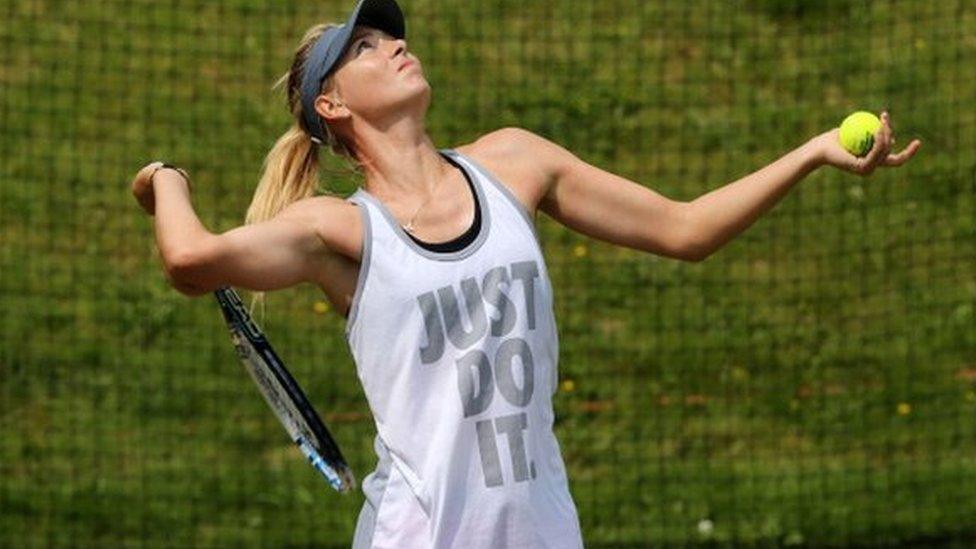
Tag Heuer was in talks to extend its deal with Ms Sharapova, which ran out at the end of last year.
But the Swiss watchmaker said those talks had now been suspended and the company had decided not to renew the contract.
In 2014, Porsche named her as its first female ambassador and she signed a three-year deal with the car company.
That contract is due to end at the end of this year.
In a statement, the carmaker said: "We are saddened by the recent news announced by Maria Sharapova. Until further details are released and we can analyse the situation, we have chosen to postpone planned activities."
Ms Sharapova is also the face of Avon perfume, Luck, and the water company Evian. They have yet to comment on the matter.
Sponsors 'burned'
Paul Swangaurd, from the Warsaw Sports Marketing Center at the University of Oregon, said Nike's decision reflected a "new era" for the way sponsors deal with these issues.
Nike is taking a "very proactive approach", which resulted from "them being burned by a lot of athletes over the years, and growing impatient with putting so much investment behind athletes that potentially comes back to bite them in the court of public opinion".
Last month, Nike dropped Manny Pacquiao after the boxer said homosexual people were "worse than animals".
The company also severed ties with cyclist and drugs cheat Lance Armstrong as well as athlete Oscar Pistorius, who killed his girlfriend.
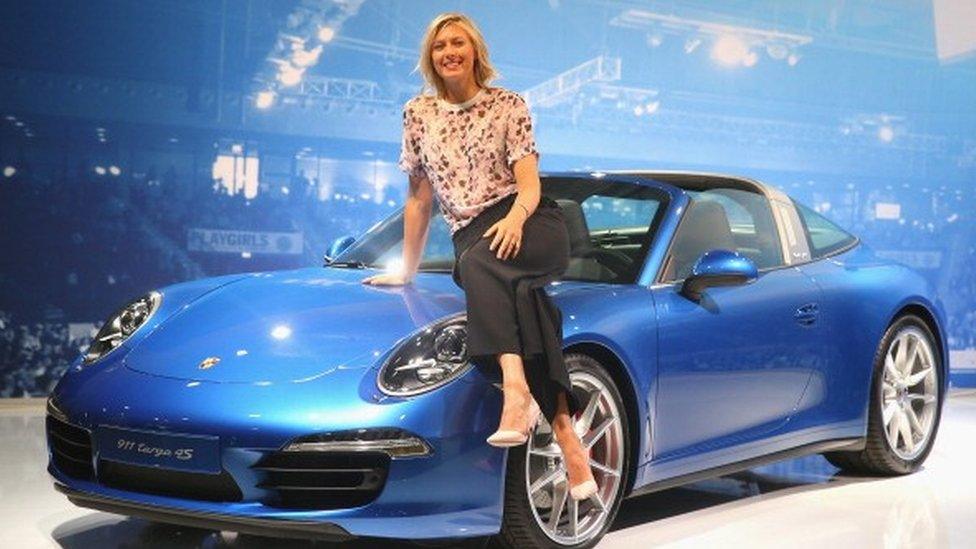
Maria Sharapova is a brand ambassador for Porsche
Failed test
Ms Sharapova tested positive for meldonium, a substance she said she had been taking since 2006 for health issues.
The International Tennis Federation (ITF) said she would be provisionally suspended from 12 March.
Ms Sharapova said: "I did fail the test and take full responsibility for it."
She said she had taken meldonium after being given it by her family doctor and had known the drug by the name mildronate.
"A few days ago, after I received a letter from the ITF, I found out it also has another name of meldonium, which I did not know," she said.

What is meldonium?
Professor John Brewer says the drug is usually used to treat heart conditions
It is meant for angina patients but athletes like it because it helps their endurance and ability to recover from intensive exercise.
It is on the banned list now because Wada started seeing it in lots of samples and found it does have performance-enhancing properties.
It was on Wada's 'watchlist' for over a year and added to the banned list on 1 January.
Made in Latvia, it is widely available - without prescription and at low cost - in many east European countries, but it is not licensed in most western countries, including the United States.
It is thought that hundreds of athletes have been using it and there are a lot more cases in the pipeline.

- Published8 March 2016
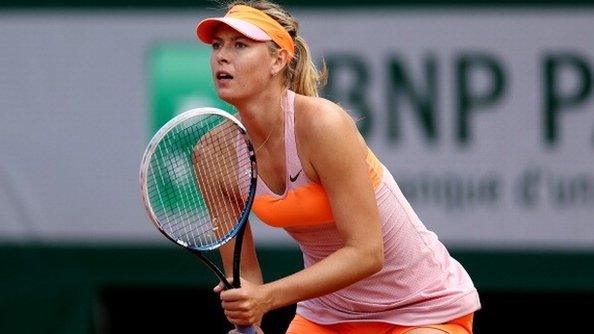
- Attribution
- Published8 March 2016
- Published8 March 2016
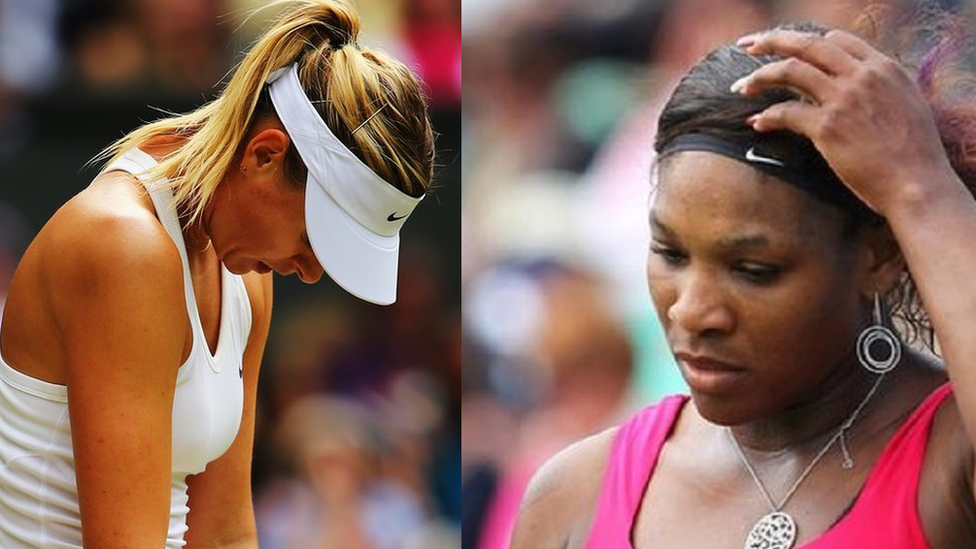
- Attribution
- Published8 March 2016
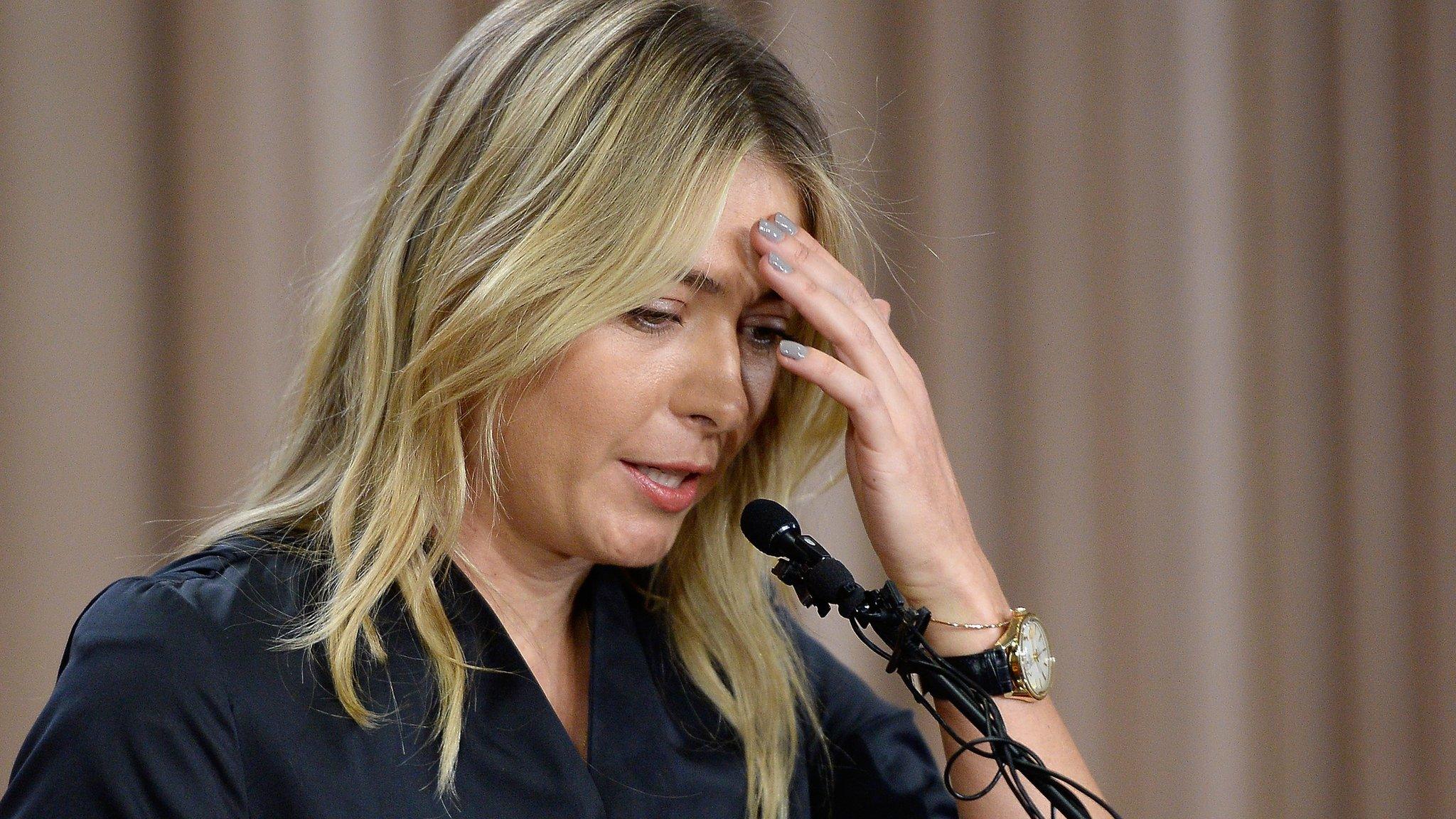
- Attribution
- Published18 February 2016
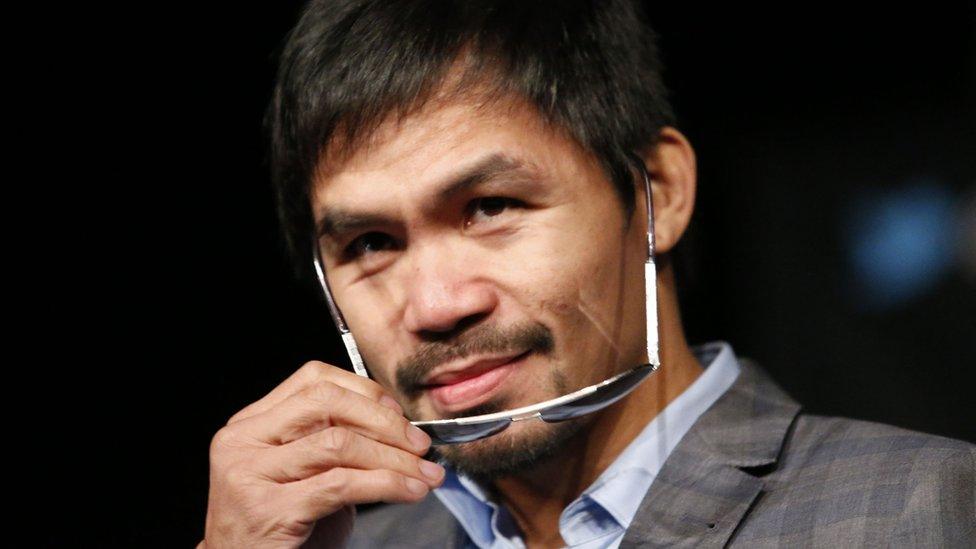
- Published21 February 2013
